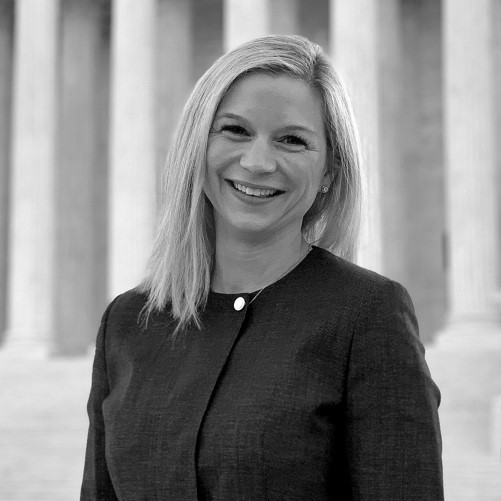
Melissa Holyoak is a senior attorney with the Center for Class Action Fairness. The center has won millions of dollars for consumers and shareholders, and won landmark precedents that safeguard investors, courts, and the general public. Read CCAF’s cert petition in the Google Referrer case here.
Today, the Competitive Enterprise Institute (CEI) asked the Supreme Court, on my behalf, to review a Google settlement resulting from a class action over the company’s alleged privacy violations by its search engine. In In re Google Referrer Header Privacy Litigation, Google settled for $8.5 million, but class members (including me) will see none of that money. This is because the lawyers representing the class members decided to take $2 million for themselves and the rest will go to five organizations that had nothing to do with the lawsuit. This unfair practice of giving away class members’ money to third-party groups is known in the legal world as abuse of the “cy pres principle.”
The French term cy pres comes from “cy pres comme possible,” meaning “as near as possible.” In class action settlements, any money that a defendant—in this case, Google—pays under a class action settlement belongs to the class members because they are the ones who claimed harm. Some of the settlement money is used to pay attorneys, but the rest is distributed to the class. Now, if some class members don’t cash their settlement checks (and it’s impossible to return that leftover money to class members), the leftover dollars are sometimes given to a cy pres recipient—a charity with a connection “as near as possible” to the harmed class members.
Where the Google Referrer settlement goes wrong, is that it skips over class members completely, not even attempting to give the millions of class members any of their $6 million. Instead, those Google dollars go directly to groups that are not part of the lawsuit. And these weren’t just any organizations. The attorneys just happened to pick their “favorites” as cy pres recipients—their own alma maters—Chicago-Kent College of Law, Stanford, and Harvard. While attorneys have an obligation to zealously advocate for their clients, in the Google Referrer settlement, the lawyers representing the class favored their schools over me and the other class members.
Here’s the kicker. To make matters worse, Google already donates to these cy pres organizations. This means that apart from the $2 million my attorneys’ will get paid, Google got rid of an enormous lawsuit brought by 100 million class members by doing exactly what they were already doing. So the lawyers make $2 million, Google takes credit in the settlement for money they are already giving, and the class members, who claimed they were harmed by Google, get nothing.
CEI’s petition asks the Supreme Court to strike down the Google Referrer settlement and put in place clear rules that prevent lawyers from taking class members’ money and giving it to their favorite organizations. This settlement sets a terrible example that encourages companies to try to get off cheap with cy pres-only settlements that direct money to organizations they already give to. And, since the plaintiffs’ attorneys get paid either way, they agree to these settlements at the expense of their clients—the class members who were wronged in the first place.
The attorneys representing class members in the Google Referrer case argue it was okay to give away the class members’ money because the class includes more than 100 million members, and it would be impossible to split up the $6 million among that many people. This is disingenuous. These attorneys regularly litigate class actions and know that this is not how class actions work. The vast majority of class actions involve a process where class members have to submit a claim before getting any settlement money. The Google Referrer settlement money could easily be distributed to the class using a claims process.
Don’t believe it? It’s been done before in Fraley v. Facebook, which also included more than 100 million class members. With a claims process, the $20 million Facebook settlement offered $10 to class members that submitted claims. In the end, class members actually received $15 each. While the plaintiffs’ attorneys in the Google Referrer settlement regularly use claims processes in the other class actions they litigate, a claims process was somehow too complicated in the Google Referrer case, where they instead delivered millions to their favorite organizations.
As a Google Referrer class member, I would have preferred to receive my portion of the settlement instead of giving it away to the attorneys’ alma maters. I wholly support and encourage charitable giving but I want to choose where my money goes. The attorneys who were supposed to represent me took away my choice and gave my money to their schools.
This blog post was previously published on the Competitive Enterprise Institute’s Open Market Blog.
